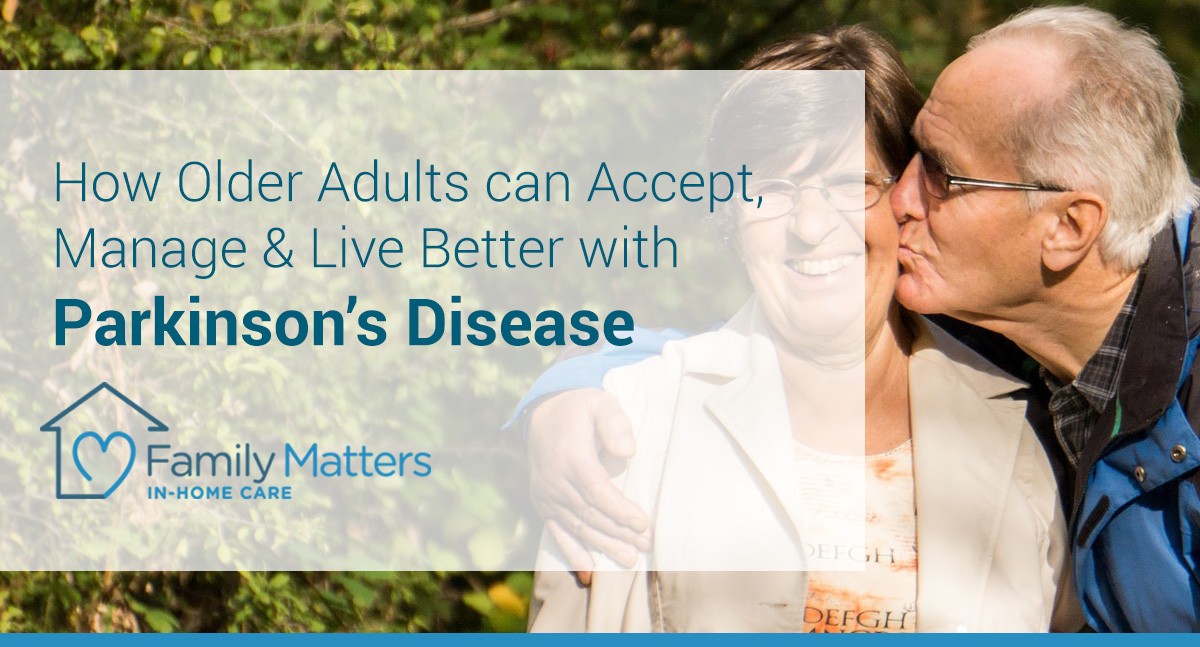
How Older Adults can Accept, Manage & Live Better with Parkinson’s Disease
Parkinson’s disease (PD) can cause trouble for older adults. Learn how to accept, manage and live better with this serious disease.
Learning to Deal with Parkinson’s Disease
Parkinson’s Disease (PD) is not a life threatening disease but that doesn’t mean it isn’t serious. Besides the inability to control movement, PD can cause cognitive decline, mood disorders, low blood pressure and more. It is estimated that over 1 million people have PD and 60,000 people are diagnosed every year.
Recognizing PD
Parkinson’s can be difficult to recognize because it affects each person differently. Whereas one person might have uncontrollable shaking, another person might maintain their delicate control.
It is actually common for a misdiagnosis of Parkinson’s because it varies so much between each person. Here are the most common symptoms that could be an indicator of PD:
- Uncontrolled shaking of the hands & other body parts (resting tremor)
- Balance problems
- Slowness of movement
- Abnormal stiffness in body parts
There are other symptoms of PD which are less recognizable such as sleeping problems or even loss of smell. To identify more symptoms in your own life, you can use the Parkinson’s Screening document by going to www.michaeljfox.org/files/PD_screening2.pdf
However, even if you are proactive and look for symptoms yourself, the most important thing to do is consult a neurological specialist if you believe that you have Parkinson’s.
How to Accept PD
Parkinson’s Disease can be extremely difficult to cope with because of how it can affect everyday life. The most important thing to know: You’re not alone.
Stress worsens all PD symptoms so the best thing you can do for yourself is to come to terms with the disease. The good news is that taking a proactive stand against PD can significantly slow down the negative effects of PD.
You don’t have to be upbeat all the time but maintaining a positive attitude goes a long way. Find activities that you enjoy and reach out to people who will help you get through it.
How to Manage PD
Healthcare professionals should be the number one resource to identify what treatment option is best for your severity of PD, whether that be medication or developmental therapy.
There is no way to cure PD but by being proactive with non-drug treatments, you can temporarily relieve some symptoms.
Taking a proactive stand against PD can significantly slow down the negative effects of PD.
How to Live Better with PD
There’s no denying that PD is difficult to deal with. But here are three ways to make it a lot easier on yourself (source).
Open Up Your Space
Giving yourself plenty of room between furniture makes it much safer when moving around the house. If you have to use a wheelchair, opening up your space is not only safer, but can make it much easier as well.
Plan Before You Go Out
Going to a restaurant that is crowded or doesn’t provide adequate space can turn a fun outing into a frustrating experience. Call ahead and organize better accommodations for you and your party.
Rely on Others
It’s okay for others to help you. If you prefer to live independently still, home care can be the perfect solution so that you are in the best living conditions as possible and receiving proper care. Home caregivers can run your errands, take you to your doctor appointments so you can concentrate on getting better.
For more information or to schedule a free consultation, contact Family Matters In-Home Care to see how we can help support your family.
 This post is courtesy of ClearCare, an all-encompassing web-based solution, empowering private-duty home care agencies to operate efficiently and grow while solving one of the biggest healthcare and economic challenges of our time.
This post is courtesy of ClearCare, an all-encompassing web-based solution, empowering private-duty home care agencies to operate efficiently and grow while solving one of the biggest healthcare and economic challenges of our time.
